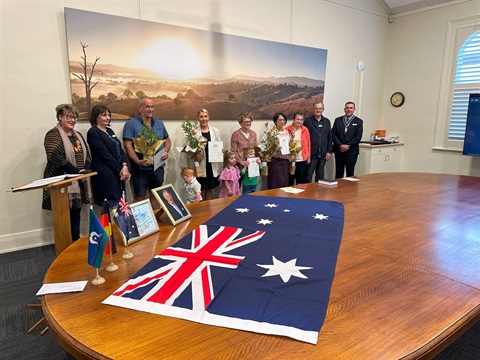The ACT Council of Social Service (ACTCOSS) today released its third 2020 ACT Election issue brief, A Just Canberra.
The brief focuses on the justice system and calls for improved access to justice, diversion from prison and greater emphasis on rehabilitation and human rights in the ACT detention system.
ACTCOSS CEO Dr Emma Campbell said: “ACTCOSS is calling for all parties contesting the ACT Election to endorse a justice policy that meets the basic requirements for a just Canberra.
“A justice policy must recognise and address the socio-economic determinants of contact with the justice system.
“This week we have been pleased to see the ACT Greens announce a policy to raise the age of criminal responsibility from 10 to 14 years. We recognise that the ACT Government has also given this policy its broad support.
“Imprisoning young children increases the likelihood of poor life outcomes and sustained contact with the justice system. It is a community failure when children are involved with the criminal justice system. We need community solutions.”
Dr Campbell said that Aboriginal and/or Torres Strait Islander people were overrepresented in the ACT justice system. In 2018-19, 13% of people arrested as offenders were Aboriginal and/or Torres Strait Islander despite making up less than 2% of the ACT population.
“It’s a shocking reality that in the ACT, Aboriginal and/or Torres Strait Islander children are locked up in youth prisons at 8 times the rate of their non-Indigenous peers,” Dr Campbell said.
“ACTCOSS also calls for reform of the adult justice system. The ACT has some of Australia’s highest rates of re-imprisonment. In 2018, 75% of detainees had prior imprisonment; for Aboriginal and/or Torres Strait Islander detainees it was 90%.
“This is unacceptable. Sustained contact with the justice system should not be inevitable. We also cannot accept the high overrepresentation of Aboriginal and/or Torres Strait Islander people and people with disabilities in our prisons.
“The next ACT Government must also invest to ensure equality before the law through improved access to justice by funding community legal centres, mediation, and individual advocacy services for criminal matters and civil matters including child protection, family law, financial issues and housing.”
Dr Campbell said that increased funding should also be directed to specialist drug and alcohol programs with a focus on assistance rather than punishment.
“Funding gaps mean long waiting lists prevent access to the ACT Drug and Alcohol Sentencing List, thereby sending people to the Alexander Maconochie Centre (AMC) instead of delivering the treatment they need,” Dr Campbell said.
The CEO for the Women’s Centre for Health Matters, Marcia Williams, said: “The rate of women detainees in the AMC has grown in the 10 years since opening, especially numbers of women on remand, and the very high number (78.3%) of women who have had prior imprisonment episodes. And yet women at the AMC still lack equal access to facilities, programs and services.
“These women are disadvantaged by being housed in a men’s prison, and the next ACT Government must implement all the findings of the Inspector of Correctional Services’ human rights-based review, which noted that there are limited opportunities for women to access rehabilitation programs and they have no access to the Transitional Release Centre.
“Many of these women are mothers, and many are Aboriginal, and there will be a significant flow-on effect to their families due to their incarceration and high levels of recidivism, in part due to the struggle of obtaining secure housing when they leave the AMC.”
Find ACTCOSS’s 2020 ACT Election issue brief A Just Canberra here.








